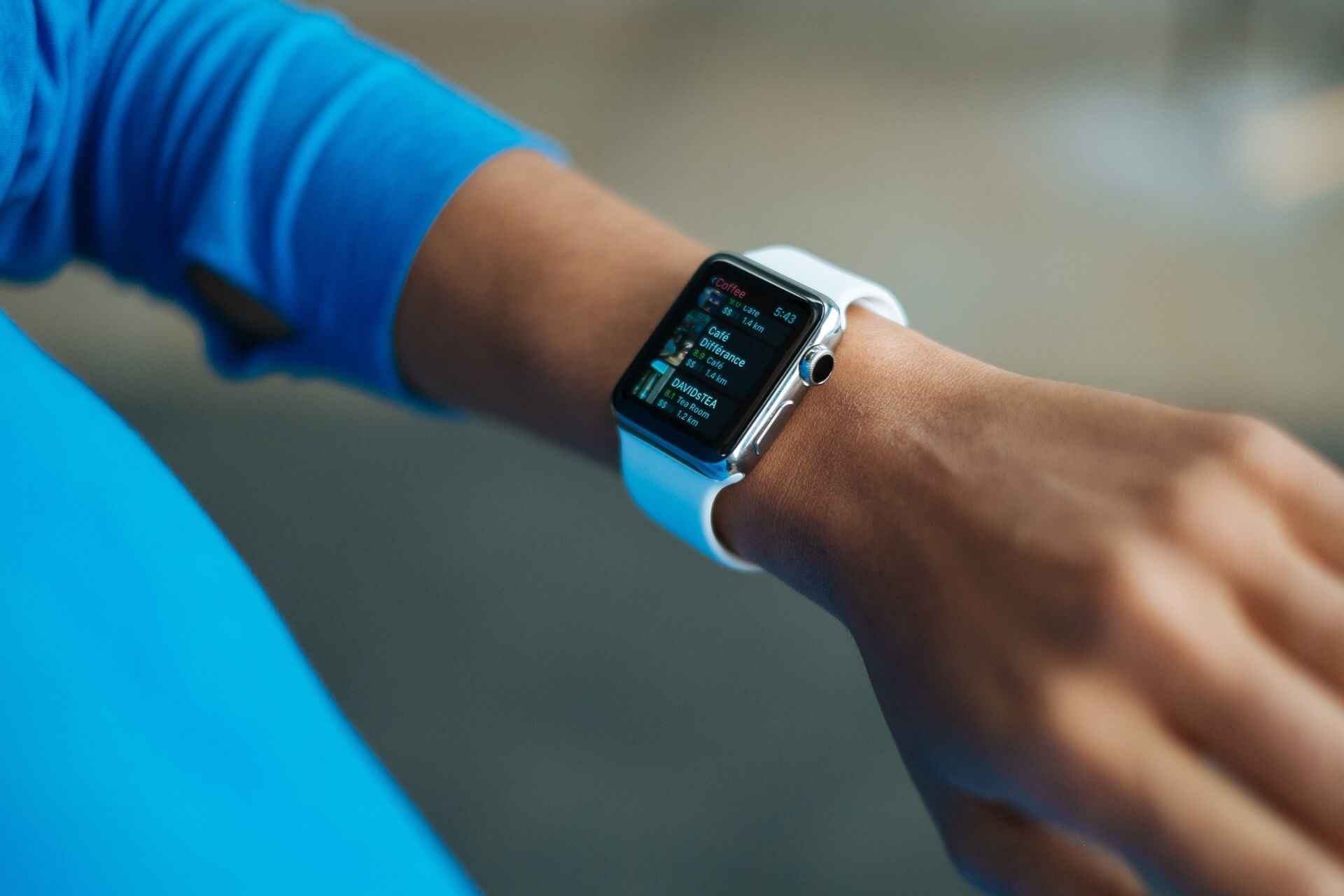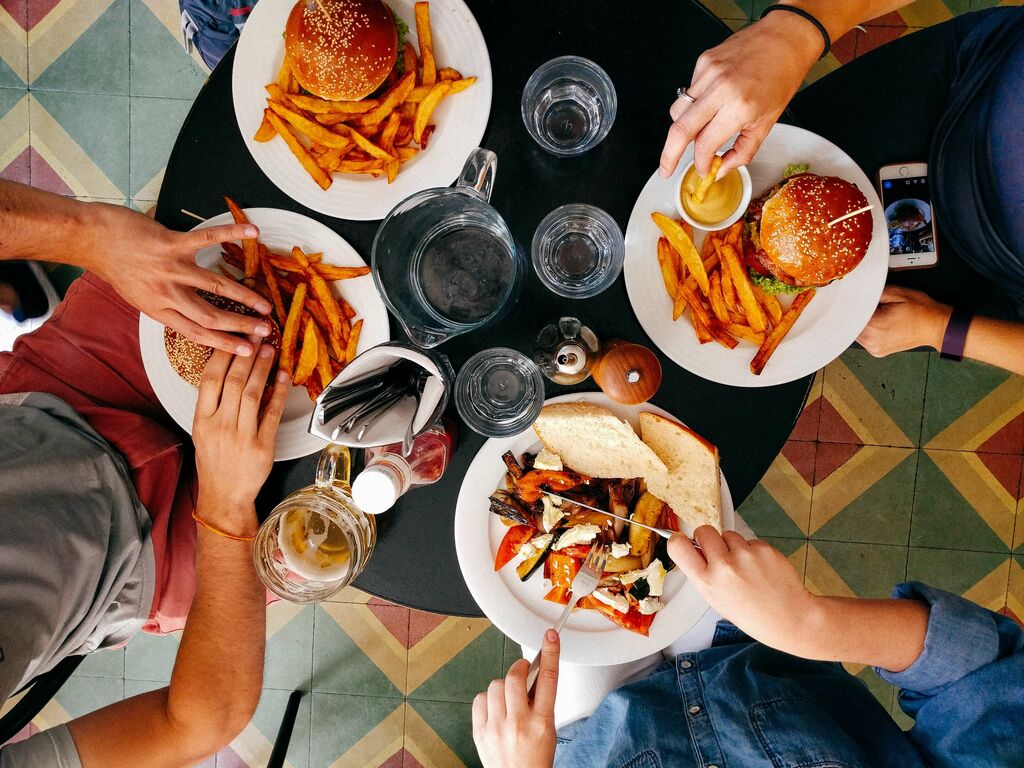Why Runners Should Stop Counting Calories

Running and nutrition. The two certainly go hand in hand. Afterall, many of us runners know that what we eat, how much we eat, and how well we hydrate can really have a big impact on our training and on our racing. It is no surprise that experts advise against ever experimenting with new nutrition and fueling strategies on race day because your body might react completely differently than you expect. It is always best to stick with what your body “knows” and is used to, in order to avoid any potential problems.
Needless to say, we can’t really perform our best if we do not give at least a little thought to the food we eat. But when does thinking become over thinking? When do we cross the line from just making sure we perform our best to becoming obsessive? Sure, you need to be aware of the foods you are putting into your body. But there are about a million reasons why we runners (and, well, basically everyone for that matter) need to empty our brains of the ongoing calorie lists of different foods and delete our calorie-counting apps, and live a bit more freely and intuitively.
Calorie counting can lead to an unhealthy relationship with food.
Many people who start counting calories get completely obsessed and/or suffer from food guilt and shame. Obsessing over calories can make you forget your “natural” self – who you really are and what you like to do – and make you feel crazy around food, people, and certain social situations. You might’ve once looked forward to dinner or happy hour on Fridays with friends. But calorie counting can change that. It can make you fearful of having a glass of wine or enjoying a slice of birthday cake because you’ve convinced yourself that it’ll undo all the hard work you’ve already done, or that it’ll set you back from your goals. You may even begin to avoid social situations because of this dilemma.

And then there’s the battle against the guilt and shame if you eat foods that are “bad” or calorically higher. You start to associate food as being either right or wrong when in reality, food is just food. Inherently, it is not good or bad. Calorie counting can quickly become an obsession that you think when you do it “right” and hit all your numbers and goals, it will lead to success (however you have chosen to define that success). It can start to make you fearful around certain foods and certain settings, and overcome with guilt when you go over your calorie limit.
Calorie counting may deprive your body of what it needs and wants.
The second reason runners should avoid counting calories has to do with the physical aspects. First of all, runners need calories. We need energy and a lot of it. Running If we want to not only sustain strong running but actually get better and improve over time, we need to fuel ourselves properly. Strength cannot be built without nourishment, without food, and without calories.

Another point to remember is that the human body is smart. Our bodies are designed to tell us when it needs more food, and when it does not, hence, hunger and fullness cues. Sometimes, when we have more intense training sessions, when we are injured or sick and need energy to recover, when we are emotionally exhausted, or even just when we have eaten some spicier foods, our metabolisms rev up and as a result, our bodies start telling us we need more food than we are used to. In these moments, listening to our bodies certainly is not going to make us gain weight, harm us or be a set back as a runner. In fact, the opposite will likely occur.
Calorie counting can prevent runners from not getting enough of a balanced diet. You might skimp on carbs or fats because they typically are more nutrient-dense (aka higher calorie) foods. But as a runner, you need carbs and fats! When we start drastically cutting out calories, our body will not be properly fueled which could lead to negative effects such as fatigue, plateau in training, weaker running performance, digestive issues and more.
Bottom Line
Life without calorie counting means we have to become more in-tuned with our bodies. We eat not because we have “extra” calories left but because we enjoy the food, the company with which we are sharing it, and because we care about nourishing our bodies. Life without calorie counting means choosing foods that our body wants, foods that actually satiate us and our appetites, rather than foods on our low-calorie lists that we have arbitrarily deemed acceptable. Sometimes this means eating a pizza or a bowl of ice cream. Sometimes it means grilled chicken on a salad with all the veggies we can pile on.

Life without calorie counting means trusting your body. And learning to trust our bodies is especially important as runners. When you give yourself the freedom to eat intuitively (aka eating what your body is asking you to eat) you won’t end up eating brownies for three meals a day. You will crave protein-packed, nutrient dense foods too, especially after a hard workout or when you are preparing for a big race. When you delete the calorie counting app, you will probably find yourself eating foods that actually satisfy you, mentally and physically. And ultimately, you will become a better, stronger runner.
Sources
- , Calorie Counting, ImmaEatThat Blog
- , Why Calorie Counting is Harmful, TheRealLifeRD Blog Article
- , 5 Signs You Might Not Be Eating Enough, Women's Running
Latest Articles
 Is Running on a Treadmill Easier Than Running Outside?Runners have their own preferences, whether it is treadmill running, running outside on the road, or exploring trails. So...
Is Running on a Treadmill Easier Than Running Outside?Runners have their own preferences, whether it is treadmill running, running outside on the road, or exploring trails. So... Is It OK to Use Trail Running Shoes on the Road?While trail running shoes can be used on roads, especially in situations where a runner encounters mixed terrains or pref...
Is It OK to Use Trail Running Shoes on the Road?While trail running shoes can be used on roads, especially in situations where a runner encounters mixed terrains or pref... How to Fix Sore Quads After Running?Rest, ice, gentle stretching, and over-the-counter pain relievers can help soothe sore quads after running. Also, ensure ...
How to Fix Sore Quads After Running?Rest, ice, gentle stretching, and over-the-counter pain relievers can help soothe sore quads after running. Also, ensure ... 10 Fruits With The Most Electrolytes to Replace Sports DrinksThese fruits are high in electrolytes such as potassium, magnesium, and calcium, essential for hydration, muscle function...
10 Fruits With The Most Electrolytes to Replace Sports DrinksThese fruits are high in electrolytes such as potassium, magnesium, and calcium, essential for hydration, muscle function...

